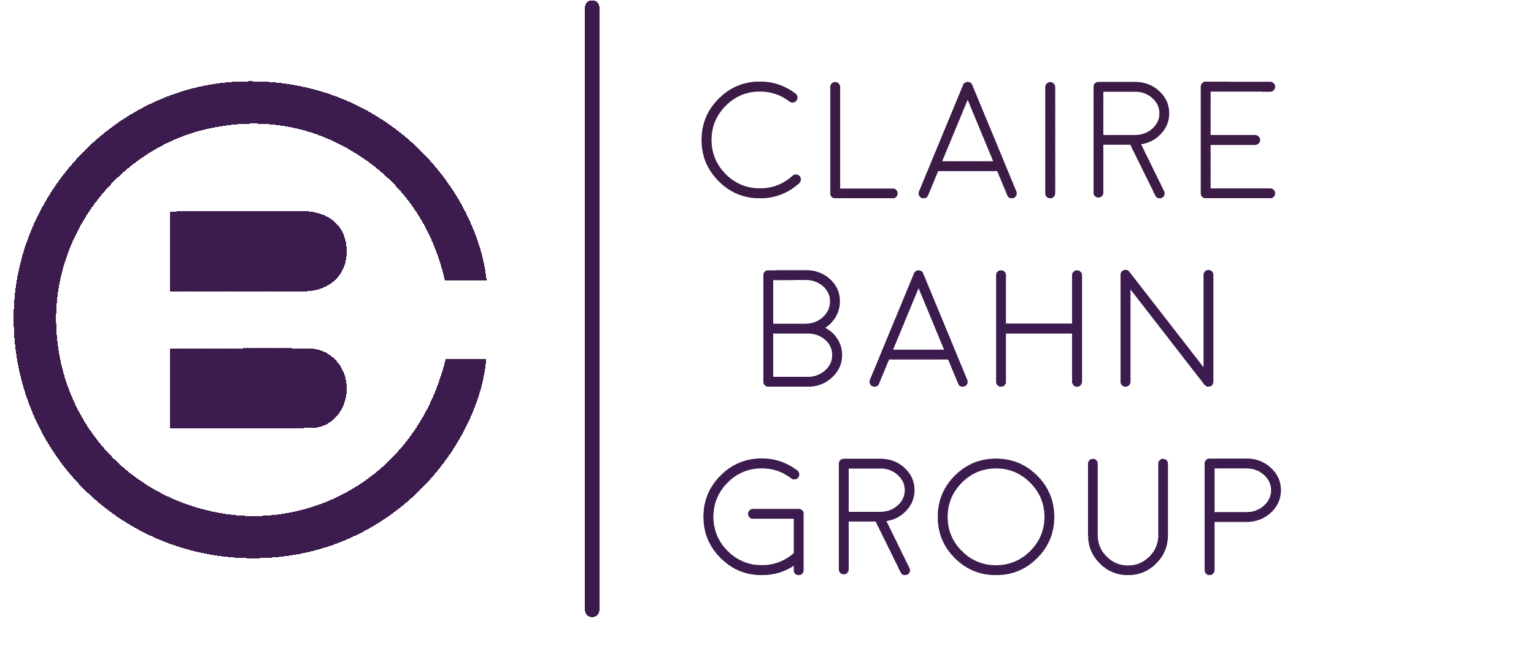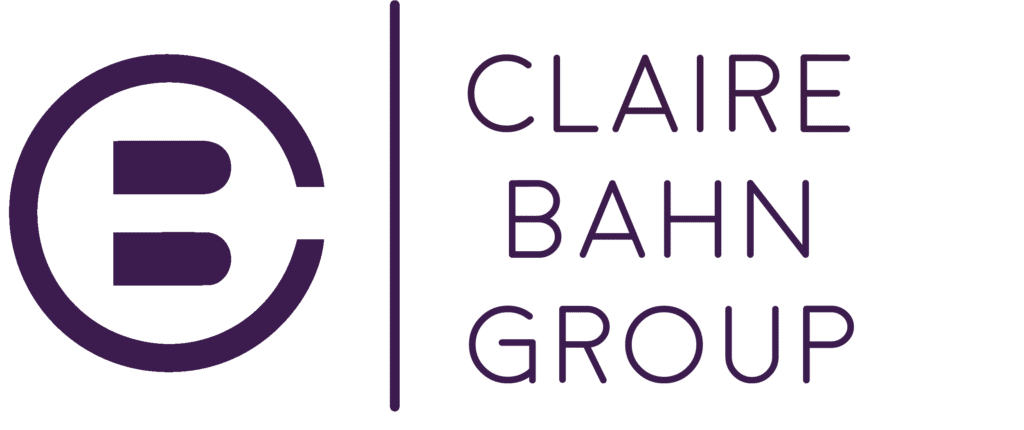One thing that many people do not understand about personal branding is why they need an individual website.
Frequently when we start onboarding clients for personal branding, clients will dismiss or downplay the creation of their website, preferring instead to just jump into producing content for social media or getting Media coverage or placement on podcasts.
Everyone recognizes the importance of a website for your company. It’s almost impossible to find anyone who doesn’t think their company needs a website to promote and inform the target audience about the company.
However, what people do not understand is that your personal brand website is not a company website but rather your own personal website. Ideally, the website URL should be your first and last name, like clairebahn.com. Your personal website serves two essential purposes. First, it is your “Fortress on the web” that ensures you control your own narrative without any interference from a social media platform or any individual now or in the future. Second, your persona brand website is quite literally your avatar in the digital world. Read on to find out why it matters and how to build your own powerful personal brand website.
Table of Contents
Why a Personal Brand Website is Crucial
Your Personal Brand Website impact on Social Media
OmniChannel Strategy to Personal Branding
How to Create a Powerful Personal Brand Website
Why Your Personal Brand Website is Crucial?
If you think that nobody is researching you or “Googling you,” that is sheer naivety. People search for references and information about you for business or social reasons; it is one constant in the modern world.
Not having any digital presence simply allows others to create or control the information available about you. In addition, if someone can’t find any relevant information about you, especially in business, they assume you must not be much of an expert. It truly is:
“ Who knows you is more important that who you know.”
In addition, your personal website is how you directly interact with the digital world in a way that allows you to reach your target audience across social media as well as, Google.
Your personal brand can either help you or hurt you. This is why a personal, focused website is a critical factor in your personal branding.
You Are Your Website
In the movie, Tron, the protagonist found a way to digitize himself and enter the digital world. In real life, the closest you can get is to build your own personal website that you create content for, that you control, and that you leverage to your advantage.
There is another crucial aspect to having your own website, while it might seem a little metaphysical…. Your website is your avatar on the web. It’s part of the process you use to connect with your target audience. It’s how you communicate your expertise to the Google and other digital platforms.
What do I mean by this? Imagine that you’re sitting at a long table; you’re on one end and a person you’re trying to connect with is on the other end of the table. In the digital world what sits between you and your target audience is not air…. It is a digital platform, such as LinkedIn, Instagram, or Twitter to name a few. Hence, you need a presence in the digital world and platforms to communicate with your target audience.
However, what you might not realize is that simply creating a profile on social media or posting anywhere for that matter is not the best way to move forward and doesn’t automatically mean that you’re reaching your audience. I’ve seen people spend months, sometimes years, trying in vain to connect with their target audience without success or worse spending their time connecting with the wrong audience.
I mean some people will just post whatever they like without caring who’s “listening”, but these people are the same people that just like to hear themselves talk. They really have no understanding of the ROI of their personal brand or a true understanding how the social media platforms work.
You see, these platforms don’t know who you are or what you’re about. They don’t automatically understand your expertise or what audience to show your content to. Their algorithms try over time to figure it out.
What if there was a much faster way to educate the social media platforms and get in front of your desired target audience? Wouldn’t you want to actually reach your target audience and start seeing a ROI from all that effort?
Educating Google
So how does this work both tactically and strategically? The 800-pound gorilla in the room is Google and its ability to search and index websites. What many people do not know is that there is a back-channel communication between Google and the various social media platforms. These platforms have their own algorithms and are trying to figure out to whom to show your content to. They do this by attempting to index you for specific topics or keywords. However, they have a lot of other operations to manage. This is where Google comes in. Google is a master of indexing websites and relating them to others.
Hence, it’s easier for these social media platforms to simply rely on Google to tell them what topics or keywords to associate you with, and by default what audience to show your content to.
Rather than allow the vagaries of algorithms to determine what topics to associate you with, It’s better for you to gain control of the narrative by forcing Google to index you for the topics, concepts or keywords, that you want, rather than allowing it to attempt to discern the keywords or topics to associate you with.
“Search engine optimization or SEO is a cute way of saying, how you speak Googles language.”
Your website is how you “Talk” to Google and educate the Google algorithm on the topics and keywords to associate you with, it’s essentially how you “package yourself” for the digital world. All of the content you create (i.e. blogs) and the SEO of your site help to reeducate and reinforce your expertise to Google so that when someone does a search on a topic you’ve demonstrated expertise, then you come up in search before your competitors
Your Fortress on the Web
Let’s be honest if you think that nobody does a search on you, then that is sheer naivety. The ubiquitous amount of information available on most people is easily found from a single Google search. In addition, the opposite is also true, if there is not a good deal of information about you then you must not be that important or you’re exaggerating your expertise. This axiom holds true:
“It’s not whom you know anymore; It’s who knows you.”
Your website is your “fortress on the web“, all of the content that you produce, information about you, your biographical information, etc. can all be included in your personal website. This has three benefits; first, you control the narrative, second, your content and connection to your audience aren’t controlled by the Social Media Platforms, third you educate Google on the topics or keywords to associate with you, so they don’t guess what audience to show your posts to.
Controlling the Narrative
Your website is where all your information lives, and you control it. Nobody else can add/delete/edit information on the site that you don’t control. Therefore, if someone creates negative comments about you on social media, on other websites, or even on YouTube, then there is a place that refutes that negative information.
So you have a website that has information about you, content created by you demonstrating and sharing your expertise. The site is successfully indexed by Google so it’s available to anyone who searches for you.
Let’s say you have some detractors or in the very least some competitors that believe they are much smarter than you and may disparage your accomplishments.
Now a potential client or customer, or even someone interested in your business decides to run a search about you. Sure, maybe they find someone wrote something negative but literally right next to it they find your website with a ton of great information and links to all your social media, reinforcing your authority and expertise.
Now you control the narrative, it’s not just the negative information out there for anyone to see.
Educating Social Media
Social media platforms have shown themselves to be fickle in the least, and sometimes diabolical in their moderation of content on their sites. While I doubt you would want to create “harmful content“ there really is no telling what social media platforms will deem as “harmful“ now or in the future. It’s better to be safe than sorry and that applies to your audience and your content. Therefore, your website is a platform that you can control that others can find and for you to state your thoughts and opinions without censorship.
I’ve seen people make what they thought were innocent comments about a subject or share a post of another person and get banned from a platform they worked years to build and develop an audience on. While these are extreme examples, the point is we do not know what will happen on a social media platform we do not control. Hence, it’s always better to have a central repository of your content that only you control.
Now take this one step further. Once you add links to all of your social media profiles, the link between your indexed website and your social media platforms means that all your efforts on your website are now flowing to and informing the social media platforms about your expertise and authority.
Your Personal Brand Website impact on Social Media
A few years ago, I like to think of it as the “Age of Influencers” you could create a single social media profile and start pumping content on a very regular basis. The platforms were new and their popularity was growing so your content could get wide exposure very quickly. Some people found that within a relatively short time, they amassed a huge following, and that visibility gave them a lot of influence.
Those days are long gone.
One of the critical metrics to watch on your social media platforms is “Reach”. Social Media Reach is the number of people that are shown your content, usually in their feed. The bigger the reach the more likely you are to build a sizeable audience.
A growing and engaged audience results in Authority. Authority leads to trust. Trust leads to Influence. The goal of any personal brand is positive influence over an audience.
“The goal of any personal brand is positive influence over an audience.”
Social media platforms only care about three things:
- Frequency – They want to see your content posted multiple times per week. Some people post up to five times weekly for maximum engagement.
- Consistency – The platforms’ algorithms also want you to post daily at around the same time. This helps them schedule the millions of posts that come in each day.
- Quality – They prefer content with high engagement rates, lengthy view times, and multiple likes or comments. Focus on your target audience’s needs first.
If a social media platform algorithms register that you frequently post quality content regularly at approximately the same time then the algorithm itself will start to promote your content to the target market. Why? Because it removes one of the vagaries of sharing content on the platform. If they have high confidence in your posting then they will take advantage of this and schedule your posts to the target audience. If they are confident that you will post every day at 3 PM it reduces some of the variables for them and they are more likely to pick up your content and put it in front of larger and larger audiences.
This strategy helps reduce many variables and puts your content in front of larger, more engaged audiences. It also encourages visits to your personal brand website, where people can learn more about you and helps to build your authority.
In truth, while the social media platform algorithms can determine over time, which audience to show your content to; this process can be greatly sped up by leveraging the back channel communication between Google and the social media platforms to educate them early on the exact audience that will be interested in your content. I
These are the primary reasons why a personal brand website is so important in building a strong brand and increasing momentum and audience awareness as quickly as possible.
OmniChannel Strategy to Personal Branding
A quick note about the many social media platforms. While there were many examples of people generating a large following from a single platform, as I mentioned. It’s virtually impossible to do that organically today. In addition, what you will find is that your influence will grow significantly faster if you implement a omnichannel approach. This means that your content and expertise shows up on every platform your target audience is on with a consistent look and feel with the same messaging.
When your audience sees you on multiple “channels” ( i.e. platforms) simultaneously, this tends to reinforce your authority. In addition, it usually takes 6 to 7 “touches” or exposure to your brand before someone starts to follow you. Since no one stays on a single platform, this increases the velocity and likelihood that they will engage and follow you.
How to Create a Powerful Personal Brand Website
Creating your powerful personal brand website is not particularly hard. There are a few things you’ll need and maybe an hour on YouTube looking at some tutorials. I would recommend that you do not use a service like Wix or SquareSpace. While these are easy to setup, just point and click really, there are downsides to indexing you that can’t be denied. There are simple managed WordPress options at many hosting companies which will do the job nicely.
The most popular and probably the easiest website builder is WordPress. Hence you need at least 3 things to create your powerful personal brand website
- A domain name
- A host
- A designed website
Domain Name
I always tell my clients that the best domain name is their full name …if you can get it. If you name is very common you might try variations like including your middle initial or hyphenating your first name and middle initial. The idea here is that you want to make sure it is very clear that you website is about “you” and that your name is prominently featured.
Hosting service
There are many companies that can host your website. I would recommend a “managed WordPress host” that includes updates, Security certificates, and caching. One thing to look out for is hosting services that Nickel and dime you for these very basic services.
Website Design
In general the simpler the better. You can find many templates for your WordPress website but you probably do not need more than 3 to 5 pages. In general, the pages you need are a
- Home page,
- About
- Contact
- Blog page(s): remember that each blog is a separate page on you site
The home page should reflect much of the information about you in the Bio but can also talk about your accomplishments, Why you created the site ( i.e. to help people understand better the topics you’re an expert on) as well any other relevant information.
While there are other technical aspects to a website, like page speed, analytics, and various plugins to make your life easier. This is enough to get you started.
Once completed your personal brand website will become your representation online. By creating content on that website both “on-page” and in blogs you start to package yourself in a manner that the digital world understands. There is a bit more to it from a technical standpoint, but the general concept is there.
Now the last step is to add hyperlinks to all your social media profiles, thus creating the link between your site and the social media platforms so that they recognize your website and what expertise Google associates you with. The links to your social media are not just “nice to haves” to help people find you online. They are a critical link that creates an overall association for you and your target audience.
Conclusion
Your personal brand website helps to educate Google on the topics, concepts, and keywords to associate you with by making sure that all of your content is search engine optimized. You use this technique to “speak to Google“ in a way that the algorithm understands and then force it to index you in the belief that it will understand and accept the topics, concepts, or keywords to associate with you.
Your website is not simply your representation on the Web. It’s how social media platforms relate and understand who you are and what your expertise is. These platforms and search engines like Google are the conduit to your target audience.
You want to make it as easy as possible for these platforms that control access to your audience to understand your authority and expertise. When done correctly, they will reward you with visibility and greater and growing reach. This results in influence over this target audience to your benefit.
Creating a powerful personal brand can be accelerated quickly by creating a personal website and leveraging it correctly so that you see a much quicker ROI for your personal branding goals.



